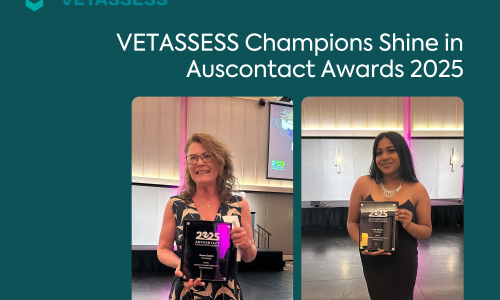If you are considering applying for a skills assessment as a university lecturer, it is important to understand the criteria for this occupation.
The Australian university sector is highly international and open to mobility, with foreign students earning about half of all PhDs awarded in Australia. One third of university staff have PhDs from overseas.

The definition of a University Lecturer for the purpose of our assessment criteria is someone who lectures students and conducts tutorials in one or more subjects within a prescribed course of study at a university and who conducts research in a particular field of knowledge.
The other titles we see in the industry for this occupation are Associate Lecturer, Senior Lecturer, Associate Professor, or Professor. These roles generally require both teaching and research activity. However, we also assess research-only roles, such as Research Associate and Research Fellow, as highly relevant to the role of a University Lecturer.
Roles that are not considered highly relevant for the assessment of this occupation include University Tutor, Vocational Education Teacher/Polytechnic Teacher and periods of study leave (to complete Master or Doctoral studies) for which an applicant is not paid a full salary.
What evidence must university lecturers provide?
As part of their skills assessment, applicants must submit evidence of their qualifications and employment. We assess the applicant’s qualifications against the Australian Qualifications Framework (AQF).
A University Lecturer requires a qualification that is assessed as comparable to the educational level of an Australian Qualifications Framework (AQF) Bachelor degree or higher, in a highly relevant major field of study. Highly relevant major fields of study include any academic discipline of high relevance to the teaching and research specialisation.
In addition to a highly relevant qualification at an appropriate skill level, applicants nominating for this occupation are required to provide evidence of highly relevant tasks, including:
- preparing and delivering lectures, and conducting tutorials, seminars and laboratory sessions
- conducting research and undertaking consultancies in a particular field of knowledge.
Evidence of research output
In addition to this, evidence of research output is required. In Australia, University Lecturers are expected to produce original and innovative research in refereed journals. Research is a core task of the University Lecturer occupation and applicants should demonstrate their involvement in scholarly research by providing evidence of published research.
For both teaching and non-teaching/research-only roles, at least one research paper, published in the last five years, is required for employment to be assessed positively. Having completed a PhD or MPhil thesis does not meet this requirement. The research publications must be in a field relevant to the area of teaching, and the academic qualification. Research papers in progress, submitted, or under peer review, are not considered as meeting the research requirement.
Academic journal articles, books and conference publications are considered appropriate evidence of research. VETASSESS accepts research evidence as original and recognised that reflects the following attributes:
- Scientific/scholarly investigation that arrives at the discovery of facts/conclusion
- Empirical processes that take precedence over judgement
- Contains an academic bibliography (not generic sources, such as magazines)
- Caters to a specific audience (the author will assume that the reader has a certain level of knowledge about the field and the topic at hand)
- Published by internationally recognised university presses, academic publishers or professional organisations in peer-reviewed journals (academic journals are usually published monthly or quarterly)
- High academic standards due to rigorous peer-review by academics in the field
- Verifiable and traceable.
An important note on published research
In short, for assessment purposes, applicants may provide evidence of published scholarly research in the form of at least one published article in a journal or book.
- We will accept any research publication, whether published during studies or highly relevant employment, as long as the date of publication (or acceptance for publication) falls within the last five years.
- We need to be able to trace and verify the publication. As an example, research papers published in academic journals that are indexed in Web of Science (WoS), Scopus and ARC ERA Journal List are considered ‘recognised’. Potential predatory journals and publishers are not acceptable.
- For publications not listed in an abstract and citation database of peer-reviewed literature, such as Web of Science (WoS), Scopus and ARC ERA Journal List, a case-by-case assessment will be conducted, taking into consideration relevant quality indicators, such as the peer-review process.
Six tips for your skills assessment
Before lodging your application for assessment, ensure that you meet these key requirements:
- The minimum education requirement is a qualification assessed as comparable to the educational level of an AQF Bachelor degree or higher, in a field of study which is highly relevant to your area of teaching and research.
- Appropriate employment settings for University Lecturers include accredited universities, and colleges affiliated with accredited universities. Applicants are required to provide a Statement of Service from their university employer that confirms highly relevant tasks.
- Highly relevant tasks include both teaching and research. Your university employer must be able to confirm that you are paid to perform both tasks. The minimum requirement for employment experience is one year at an appropriate skill level, i.e. after the educational requirement is met, working a minimum of 20 hours per week.
- Demonstration of research is mandatory. Applicants are required to complete the Publication List Template which provides a comprehensive list of research/publications in the last five years prior to lodging a skills assessment application. When completing the template list, provide as much information as possible to assist your Assessment Officer in accurately tracing and verifying your research work.
- Employment must be fully paid. Some overseas universities may allow for an employee to pursue further studies relevant to their specialised area of teaching and research; for example, to complete doctoral studies at an Australian university while they remain on the payroll in a highly relevant role, such as lecturer. This period of employment can still be considered, as long as full pay is/was received during this period. Note that evidence of a stipend, scholarship, or partial payment of salary will not be accepted as appropriate remuneration.
- Don’t forget your CV! A self-authored and detailed curriculum vitae provides a comprehensive overview of your professional activities and achievements. University Lecturers will generally be able to provide a list of all their publications, awards, grants, conferences and other achievements, which may serve as additional supporting information for a skills assessment application.
About VETASSESS
For more than 25 years VETASSESS has provided tailored, independent assessment services to governments, education sectors and industries globally.
We have pioneered assessment services to recognise and verify individuals’ qualifications, skills and experience for migration purposes against the requirements of 341 professional and 27 trade occupations.



